A BRIEF INTRODUCTORY HISTORY
Yemen is located in what has historically been considered the finest part of the Arab Peninsula, which has prompted numerous attempts to take control of the area.
Before oil was found elsewhere on the Peninsula, Yemen was also seen as having the largest concentration of natural wealth. At that time, Saudi Arabia had little more than sand to tempt potential invaders.
The richness and beauty of this Arabic Eden is notorious, and is referred to in numerous Historical and religious books.
Invading Yemen has been the dream of Saudi Kings since the establishment of the first Saudi dynasty about 275 years ago (1744), but they were always stopped at Yemen’s borders.
In 1750, the Ottoman Empire managed to seize power in Yemen.
After the establishment of the third Saudi dynasty in 1934, the Saudis attacked Yemen but were unable to defeat Yemeni people.
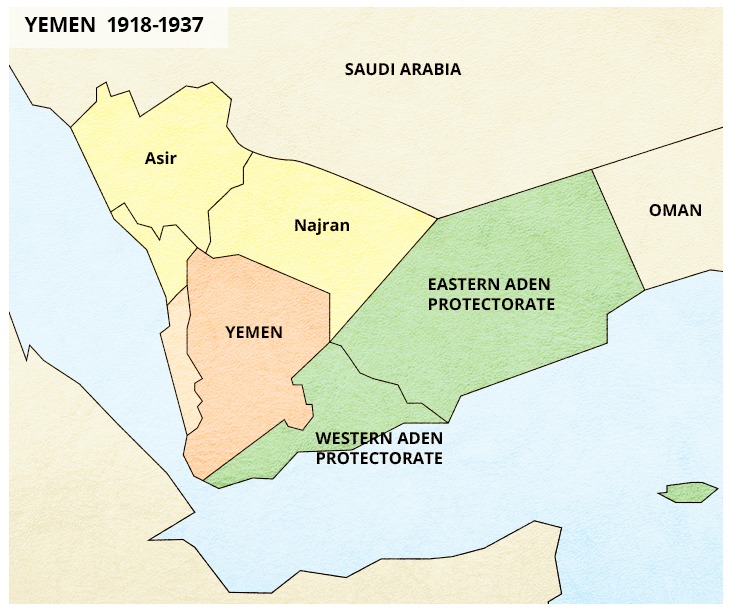
To bring the war to an end, the countries agreed to give the Najran, Asir and Jizan provinces to Saudi Arabia for twenty years. Since then, Yemen has constantly been involved in conflicts over these provinces.
In 1918, the northern area of Yemen gained independence from the Ottoman Empire and became the first republic in the Arab peninsula in 1962. In 1967, the rest of the country gained independence from the UK.
The British tried their best to build enmity between the North and the South throughout their decade’s long occupation, ever afraid that the people of South would align with the Ottoman Empire purely for religious reasons.
The conflict between Saudi Arabia and Yemen started up again in 1962 over the Saudis fears that the newly established Nationalist Republic (supported by the late Egyptian President Gamal Abdel Nasser) could pose a serious danger to their rule.
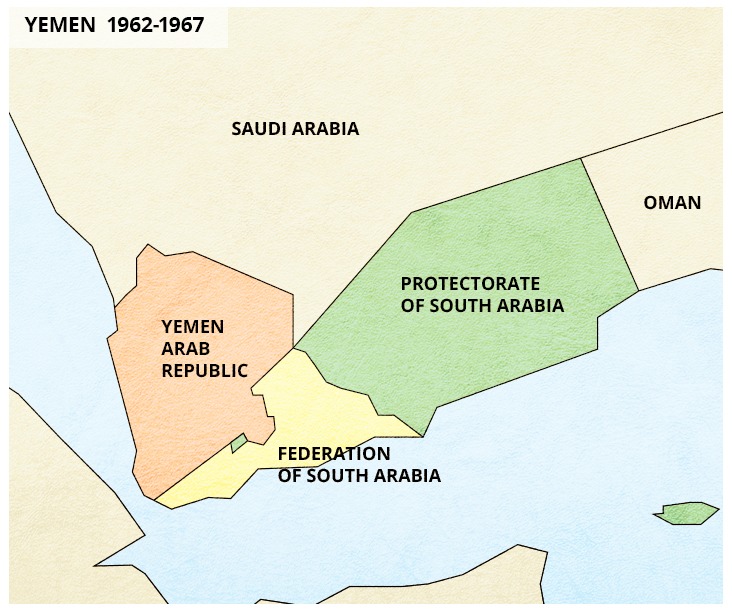
Saudi Arabia supported Mohammad Badr Hamid Aldin, a man who claimed to be the monarch of Yemen, driving the country into bloody battles between those supported by Saudi Arabia and the central government supported by Egypt from 1962 to 1970. The war eventually ended in victory for the republicans.
Suadi Arabia’s concerns intensified when a socialist republic supported by the Soviet Union was established in the south of Yemen in 1967.
In 1980, oil was found in Yemen, and new debates began over ownership of the oil wells.
The Saudis did all they could to stop foreign companies’ exploratory expeditions and the digging of oil wells in Yemen- they even forced French oil experts to leave the area. In 1989, the Saudis threatened 6 western companies who wanted to sign agreements with the Yemeni government, saying that if they did business in Yemen, they would no longer be doing any business in Saudi Arabia.
In 1990, the northern and southern regions of Yemen finally joined together to form the Republic of Yemen. This was also seen as a threat by Saudi Arabia since a competing country had been established on the Arab Peninsula with access to an impressive amount of resources.
When Iraq invaded Kuwait in 1990, Ali Abd Allah Saleh, the late president of newly united Yemen, supported Saddam Husain. In response, Saudi Arabia expelled about two million Yemeni workers from their country.
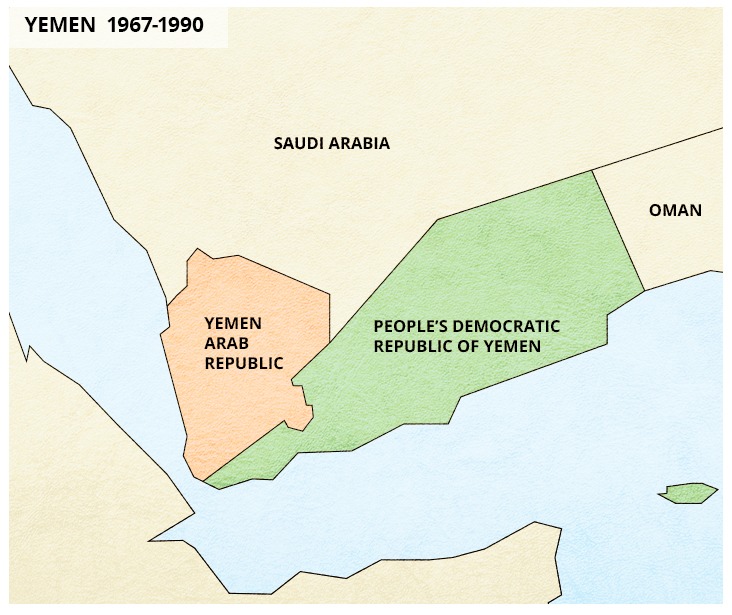
In 1994, Saudi Arabia’s support for the Separatists in the south led to civil war. The North emerged victorious, and in 1995, troop presence increased on the borders between the two countries and small clashes began to take place.
The clashes came to an end as a result of the Jeddah Agreement in 2000. In the document, Saudi Arabia pledged to stop supporting the separatists and interfering in Yemen’s internal issues.
Yemen began to experience serious trouble again in 2011 when massive protests against Ali Abd Allah Saleh took place, eventually forcing him to resign.
Abd Rabeh Mansour Hadi, Saleh’s deputy who was supported by Saudi Arabia, was then put in charge of a two-year Transitional government which was supposed to prepare the country for new elections.
However, in 2014, the economic situation of the country began to grow worse and Hadi proved unable or unwilling to organize the elections as intended, resulting in new rounds of protests. Hadi was forced to resign on January 21, 2015.
Taking advantage of the power vacuum, the Houthis were able to seize control of the country, forming a ruling coalition called the Ansar Allah Coalition.
At the time, other countries in the region were still reeling from the Arab Spring, and the Persian Gulf Arab countries began to sense the impending danger.
It was within this context that Prince Mohammad Bin Salman was appointed Crown Prince of Saudi Arabia. He believed he had the opportunity to fulfill his ancestor’s dreams by conquering Yemen and launched the current war. He was expecting to claim an easy victory within a couple of weeks.
However, his ancestor’s dreams became a nightmare, and these weeks slowly stretched into years.
The war was supposed to put Abd Rabeh Mansour Hadi back into power in Sanaa, but the path back into Eden has proved far more difficult than expected.
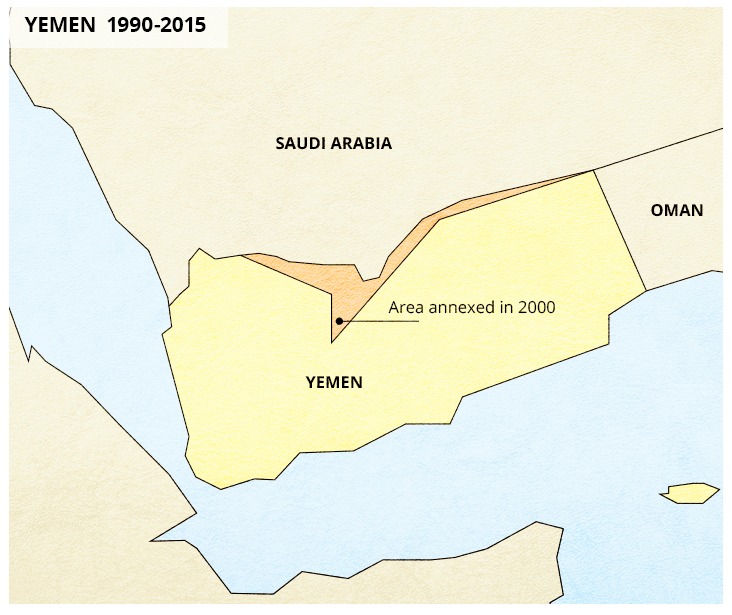
RELATIONS BETWEEN YEMEN AND IRAN
When pictures from the meeting in August between Mohammed ‘Abd Al-Salam, a representative of Ansar Allah and Ayatollah Ali Khamenei were published, many observers noted that the Yemeni representative attended the meeting with his “Janbieh” (Dagger of pride).
Those who are familiar with the security system of the Iranian leader’s office know well that even very high ranking Iranian officials close to the leader are not allowed to enter his office armed.
When Saudi Arabia’s Yemeni allies meet with Saudi officials, they are required to surrender their daggers in advance.
According to Yemeni tradition, a “Janbieh” is given to a young boy when he becomes a man. It is considered a sign of pride which should be carried at all times.
The Iranians, therefore, were sending a very clear message by publishing these pictures. They trust their Yemeni Allies so much they allow them to meet the Ayatollah himself while carrying their daggers. The Iranians want their Yemeni allies to keep their pride and dignity.
Iranian authorities openly stated that they support Ansar Allah and consider them close allies. This was the clearest statement on the matter Iranian leaders have made in at least 4 years.
Iran’s previous ambassador to Yemen told me that before the latest war began, his country was happy simply to maintain good relations with Yemen. However, in the aftermath of Saudi Arabia’s horrific war, they have begun to consider the Houthis close allies.
This is ironic, as one of the main reasons Saudi Arabia gave for launching its attack on Yemen was curbing Iran’s influence… the war has essentially done the opposite.
THE CURRENT SITUATION
The Separatists in the south once again have control over Eden, the economic heart of Yemen.
It is notable, however, that while the separatists being supported by the United Arab Emirates were moving towards Eden, the Saudis made no effort to support their allies.
The situation provokes several questions. Are there actual differences between Saudi Arabia and the UAE, or is some closer level of cooperation taking place behind the scenes?
What is clear, is that all the players involved are extremely tired of the seemingly unending war, and yet, no solution is forthcoming. For over four years, neither side has been able to move an inch forward.
With a military victory off the table, Saudi Arabia’s new plan seems to be once again separating Yemen into two countries, and then entering into negotiations with the newly established authorities.
If the plan works, Saudi Arabia will be able to get out of the war and then sponsor one group against, fostering an all out civil war.
Abd Rabeh Mansour Hadi will stay in Saudi Arabia until he is needed again.
The Ayatollah seems aware of the plan, as he warned the representative from Ansar Allah during their meeting that the Yemeni people must thwart any efforts to divide the country again. His statement also suggested that Iran would play a role in ensuring the country remains united.
If they are unsuccessful and Saudi Arabia manages to enact its plan, it will undoubtedly result in many more years of war and crisis.


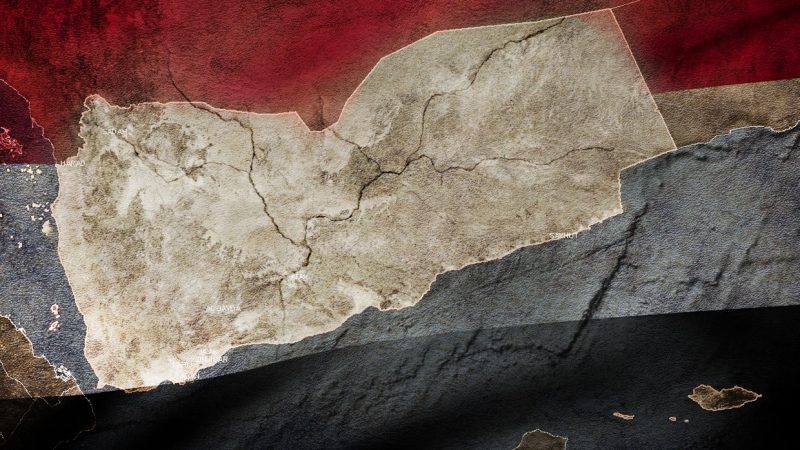






Leave a Reply